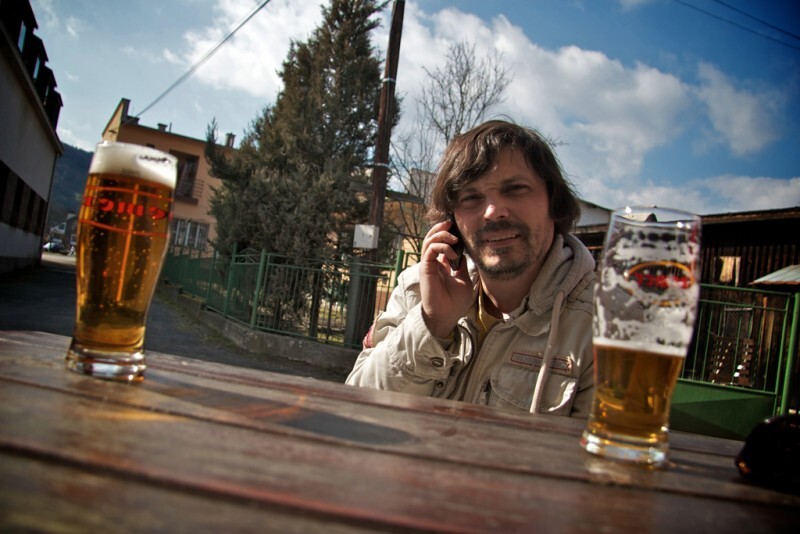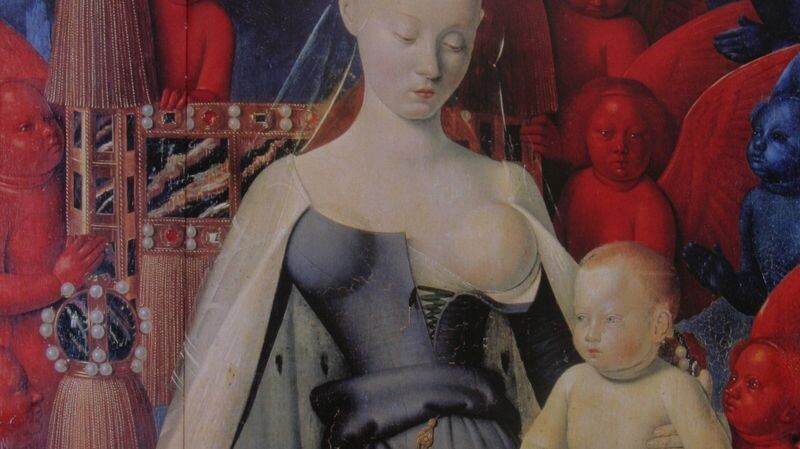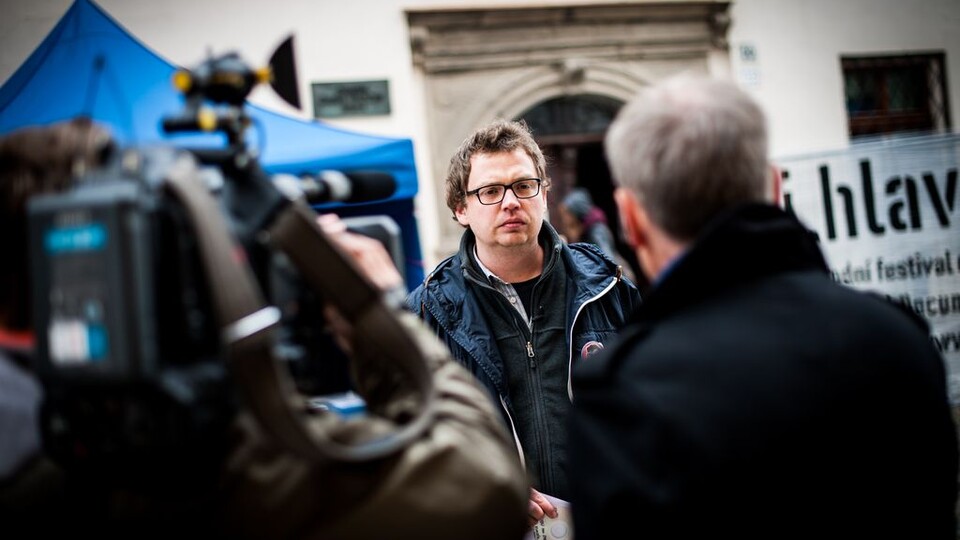I am nobody
Yesterday, Slovak director Jaroslav Vojtek presented the world premiere of his latest film, The Gypsy Vote, at the Jihlava festival. The man behind the successful Border, which was shown in Jihlava three years ago, talked about the status of Roma in his home country, the tireless search for identity, and the possibilities that film (documentary or fiction) offers him in his personal search. He revealed that he is already working on a new film based on a series of four of his own short stories. The attempt to understand himself and the world around him remain an impulse for his work.
What is it like to be a Roma in Slovakia?
Very difficult and complicated, I believe. The atmosphere is currently very tense, because the politicians have decided that they will resolve the Roma question within a year, which in my opinion is absolute nonsense. It’s a historical problem that needs to be dealt with for many years. It has been ignored for forty years, so in my view it will take around eighty.
And how does the Slovak government plan to resolve this “problem” within a year?
We’re all curious about that. I don’t want to be completely critical, but I can’t not say it… The basic problem is that this issue is being addressed by the Ministry of Interior, which is a repressive ministry. And this has caused the issue to be ascribed a kind of criminal subtext: if the Roma would just stop being bad and do stupid things, then they’ll get their welfare benefits. It’s pigeonholing people and in my view it should be dealt with by the Ministry of Social Affairs. The core of the problem dates back to the communist era, when Slovakia’s Roma were massively moved to Bohemia, where they never found a solid footing. After the revolution, they returned to the Slovak settlements, but they were absolutely unprepared for the new situation.
Your new film is called The Gypsy Vote (Cikáni jdou do nebe). Generally speaking, the word Gypsy is considered negative. Only one word has been established as being correct – Roma. Is there a particular intention on your part in choosing the word Gypsy?
First of all, it is a reference to the play Queen of the Gypsies (Cikáni jdou do nebe), but most importantly I have spent a lot of time among Roma and have often found that they themselves sometimes have not adopted the Roma label. Some have told me, I’m a gypsy, here’s is my bottle, I’ll drink it and play a tune… So I have remained faithful to this sentiment. It’s the gadjos who came up with the idea that they should be Roma.
How did you meet your film’s protagonist?
I first met him eight or nine years when we were filming a report for TV Markíza. During filming, I realized that there might be more there than a mere report, and so I came back to Kokava nad Rimavicou to see Vlado Sendrei, and we created a series called The Sedrei Family on the Road, a kind of band road movie for television. But I still felt that I had to do more, and as they say, every documentary filmmaker is required to make a film about the Roma. I didn’t want to make film from a Roma settlement or look at welfare benefits. I wanted to create something that we felt close to, and that is politics. I saw Vlado as someone who wanted to be a politician. It wasn’t until later that it became apparent that he as a Roma saw everything differently. Nobody was interested that they live in the settlement in the woods, but that he wanted to be a politician and live among us – now that was something that we should be interested in. Although we should be interested in gypsy settlements, because we live together in the same country.
It strikes me that descriptions of your film focus in particular on the subject of “Roma-ness”. But when I saw the film, I felt that far more prominent than Roma identity was the search for identity in general and attempts at participating in society through some kind of role – in this case, as a politician. For me, the subject of being a Roma was secondary.
You are exactly right. It is a film about identity, about integrating, about questions as to who I am and where I belong, and about coming to terms with the majority society. The film’s protagonists are looking for themselves, and it isn’t just about Roma, but it applies to us all. For me, the film’s climax is the scene where Vlado is sitting next to his wife after the election, and he says to her, “I am nobody”. At that moment, you realize that this person wants to establish himself. We are not the only ones undergoing a crisis; the Roma community is, too. A crisis of family relations, friendship, and identity. We don’t see it, we just see one beehive, but they have their problems, disintegrating social structure. It is the result of adopting the gadjo way of life. Before, there was no such thing as a Roma having a mistress. Today people get divorced. That was never there before.
In the end, the film’s main character, Vlado Sendrei, seems a bit like a loser.
Yes, it is not a film with a positive protagonist. I wanted to show the kind of person he is, the kind of politician he could be. I show him with all his negative attributes, but what is important for me is that he is looking for something.
So the final message is not disillusionment.
After a long time, I finally wanted to make a happy film, an audience-friendly film. I really tried. But I’ve heard reviews that it isn’t all that happy. When I first saw the film, the way it resonated within me is that I was terribly sad inside.
In 2009, you presented your film Border in Jihlava, with which you won in the Between the Seas section. I am interested in the border as your leitmotiv; it seems to me that the border has made its way into your latest film as well.
That probably is not coincidence. My protagonists are apparently people who exist beyond the boundaries that they want to exceed, that they want to open or find. Maybe it is something within me. I come from a small town and I see the border as being between the big world, the big city and film, and I am still dealing with that. Maybe they are unconscious self-portraits.
What role did Vlado’s wife play in the film – a dominant woman who does not support his dreams?
She took off his rose-tinted glasses and reminded him of reality. She told him, “You’re a Roma. Where are you going? You have a family here. What do you want?”
And is that the way it really is?
Yes, it is. A Roma has to expend three times as much effort as a white person. So can he cross that boundary? I think that if politicians were serious about the Roma, then they would be third or fourth on the ballot, not thirty-sixth. It’s a pseudo-cleansing of their conscience. We put him on the ballot, but in thirty-sixth place there is no way he’ll win. Not a single political party is willing to change. Imagine a black president in Slovakia, or anywhere in Central Europe. We still have a long way to go…
On the other hand, Vlado didn’t voice any meaningful political program in the movie. Did he even have any idea of what he would have done as a politician?
He had no idea. He wanted to be a politician.
Isn’t that one of those problems…
It’s not a pro-Roma film, it is a mirror held up to them. It was like this: when I found out that he was going to run, I thought that as a well-known person from central Slovakia he would be elected and would be on the regional council. He’d be the only Roma there, and I would make a film about how he fared in his new position – whether he would keep his Roma identity and help the Roma, or whether he would allow himself to be corrupted. I shot an introduction to a feature-length film, but in the end it all turned out differently, and the entire film was just about the election. I myself was long disillusioned about the fact that he lost.



